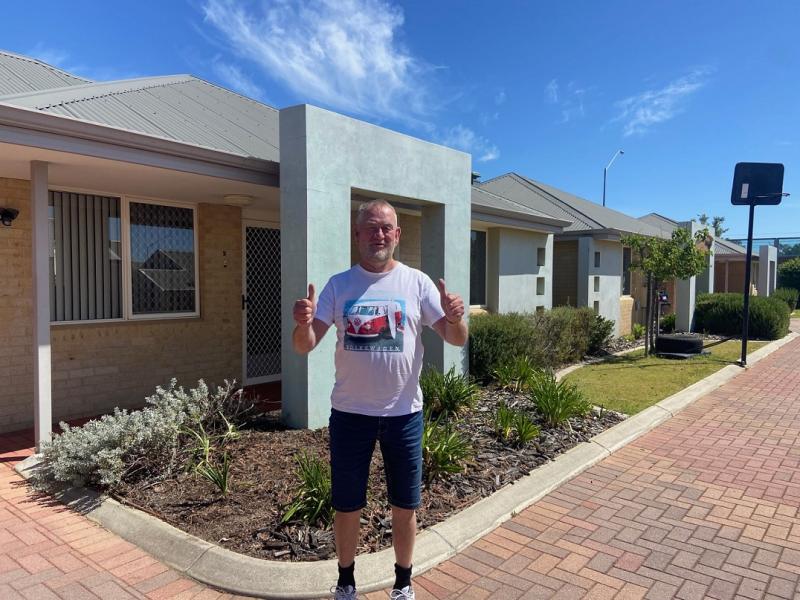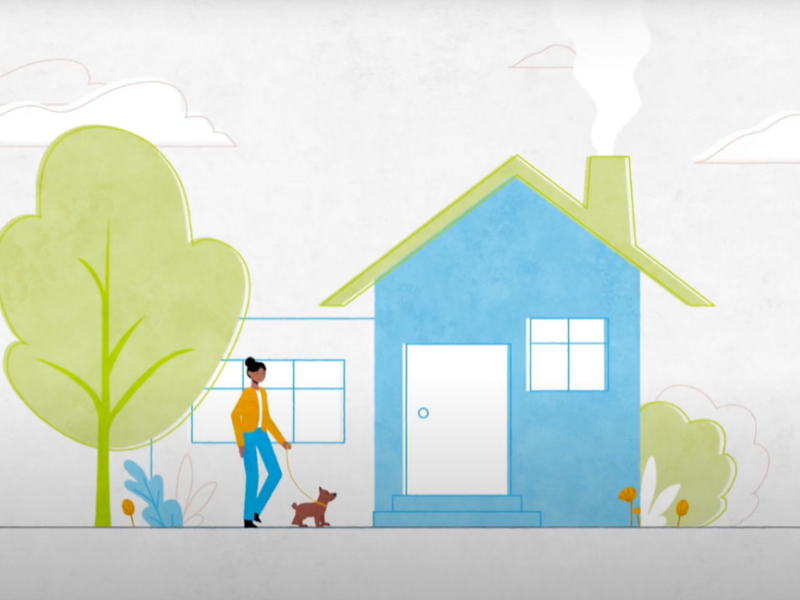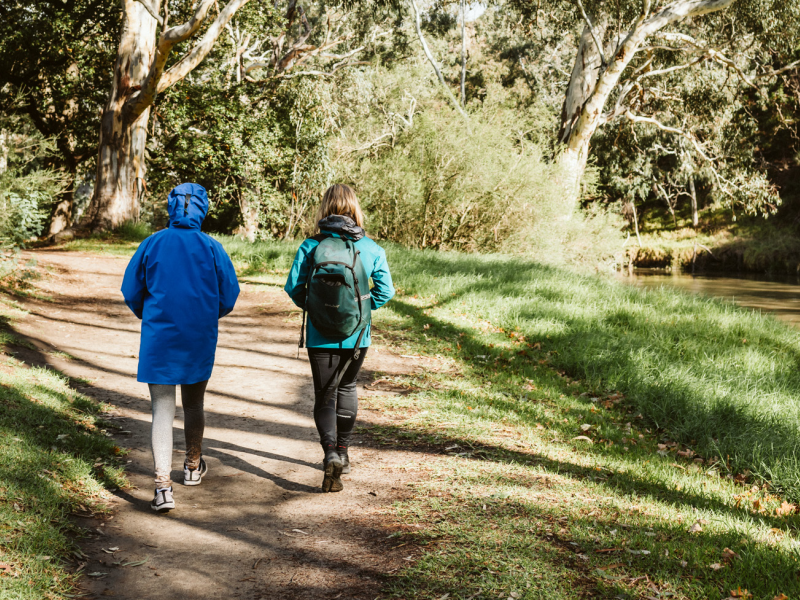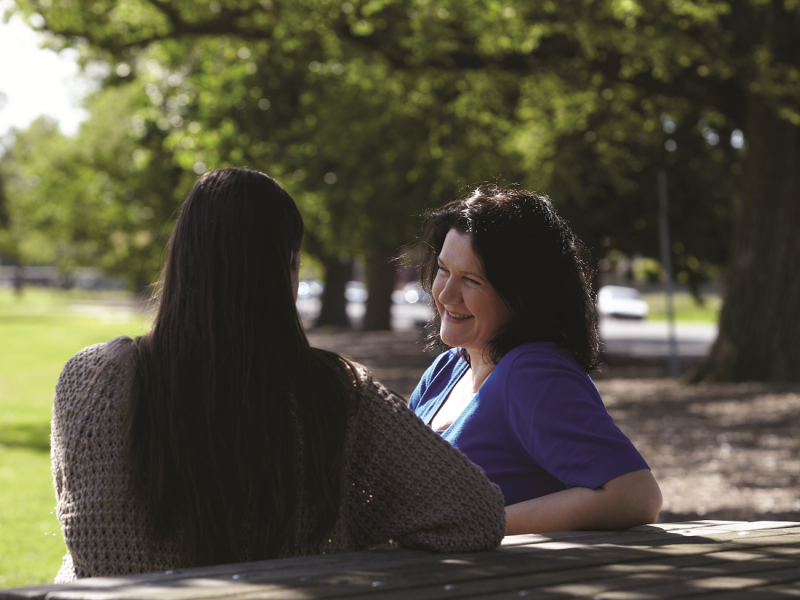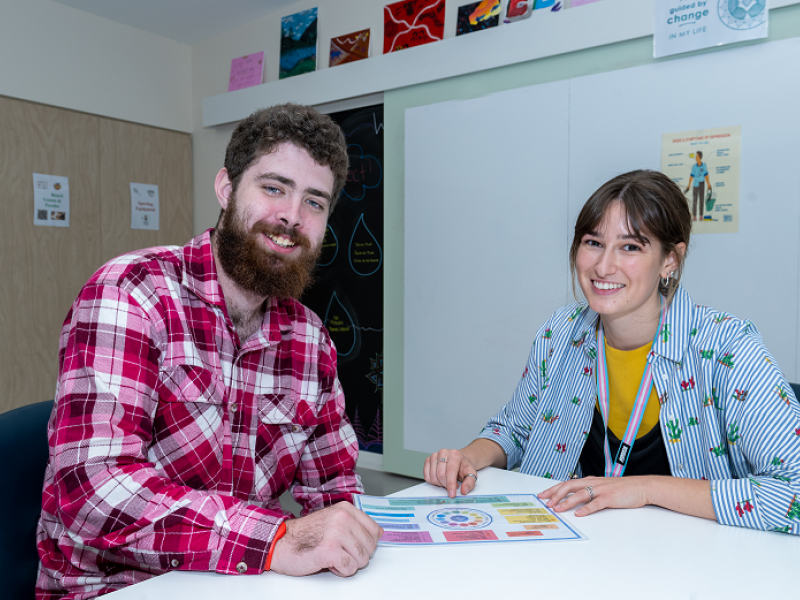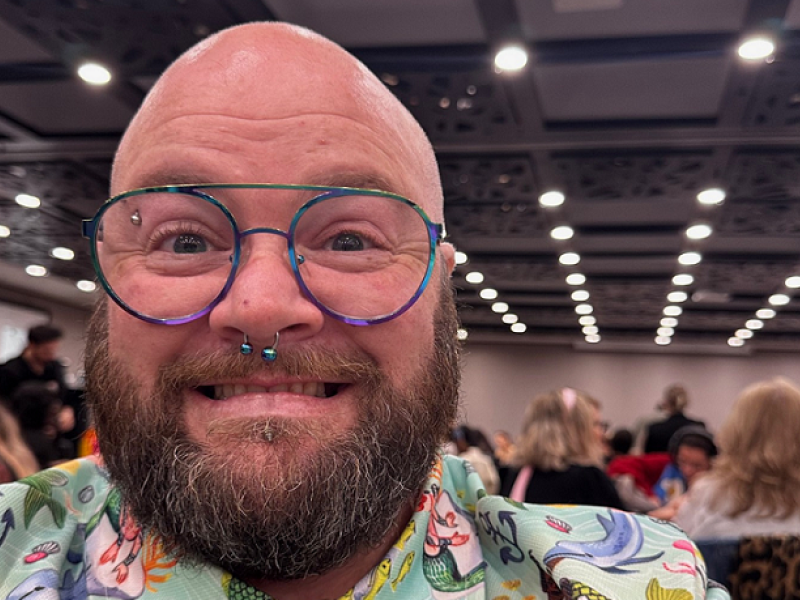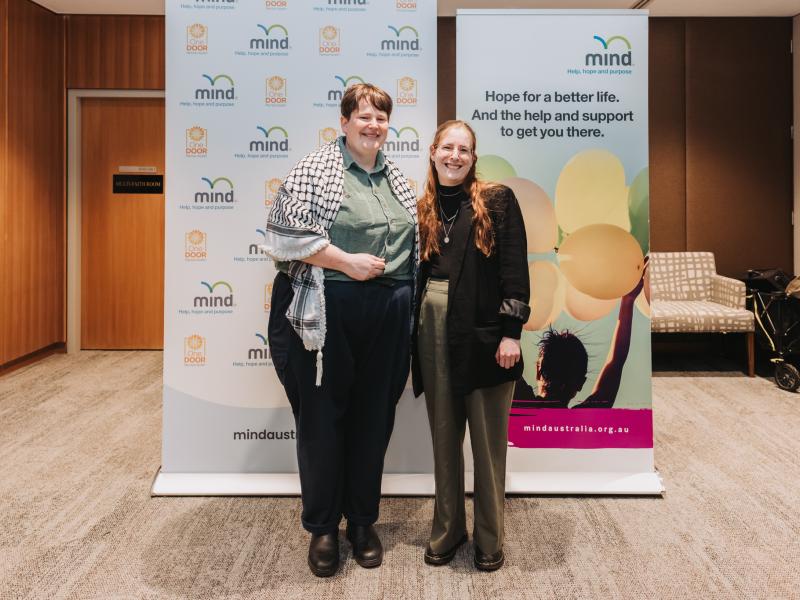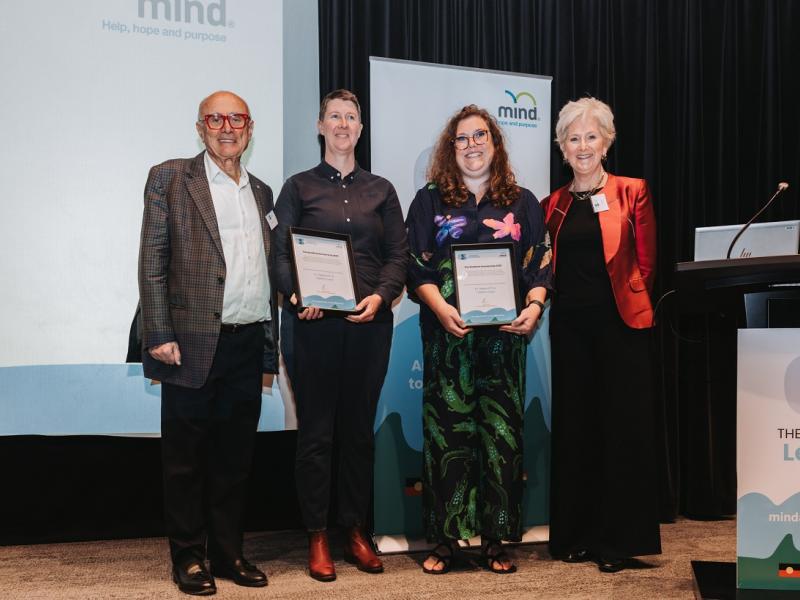Robert says Mind Australia’s Active Recovery Team (ART) in Mandurah has helped him find long-term accommodation and improve his mental wellbeing.
The 62-year-old was recently forced to find alternative accommodation due to financial pressures. He tried private rentals and short-term accommodation, but Robert was unsuccessful due to the housing crisis and the increasing general cost of living.
“With the rental market being high in demand I was not having any luck. This really made me feel depressed,” he said.
“This is when I started to become unwell; I walked into the local Emergency Department seeking support and I was referred to the ART.”
The Active Recovery Team is a three-month service for people who are experiencing mental health and wellbeing challenges that adversely impact aspects of their day-to-day life.
ART provides a blend of clinical and psychological supports that help people manage mental distress and alcohol and other drug issues, and avoid repeated presentations to Emergency Departments.
People who access ART are supported by specialist mental health nurses and community mental health and peer practitioners. They also receive an individualised recovery plan that includes a transition plan for after the completion of their support from ART.
Through ART, Robert was allocated a peer support worker – someone trained to use their lived experience of mental ill-health and recovery to provide practical and emotional support.
“Peta helped me to navigate the rental market by attending open homes with me and she helped me with filling out housing applications,” Robert said.
“This was a very stressful time for me and the support I was given helped me to maintain my wellbeing.
“Peta also helped me find peer support groups and a walking group. ART made me feel comfortable and I felt safe discussing the stigma I had experienced in my life as a gay man. ART held the space for me while I shared with them what was going on for me. I felt as though I could talk to them about anything.”
Robert has since moved into his own unit in a long-term supported accommodation service in North Perth, and he says he feels like his old self again.
“Now I have my own little home and garden. Some of the activities I look forward to are; walking at the local lake, working in my garden and playing pool with mates,” Robert said.
“There were many moments when I didn’t feel safe and I couldn’t see a future, but thanks to ART and the team at Peel Community Mental Health I feel like I have a purpose in life.”
If you would like more information about the Active Recovery Team visit the Mind website, or phone 1300 286 463.
If this article raises concerns for you, please call Lifeline on 13 11 14. Aboriginal and Torres Straits Islanders can also call 13 YARN (13 92 76) a 24/7 national crisis support telephone service staffed by Aboriginal and Torres Strait Islander peoples.
If you would like more information, please contact us.
1300 286 463
[email protected]
